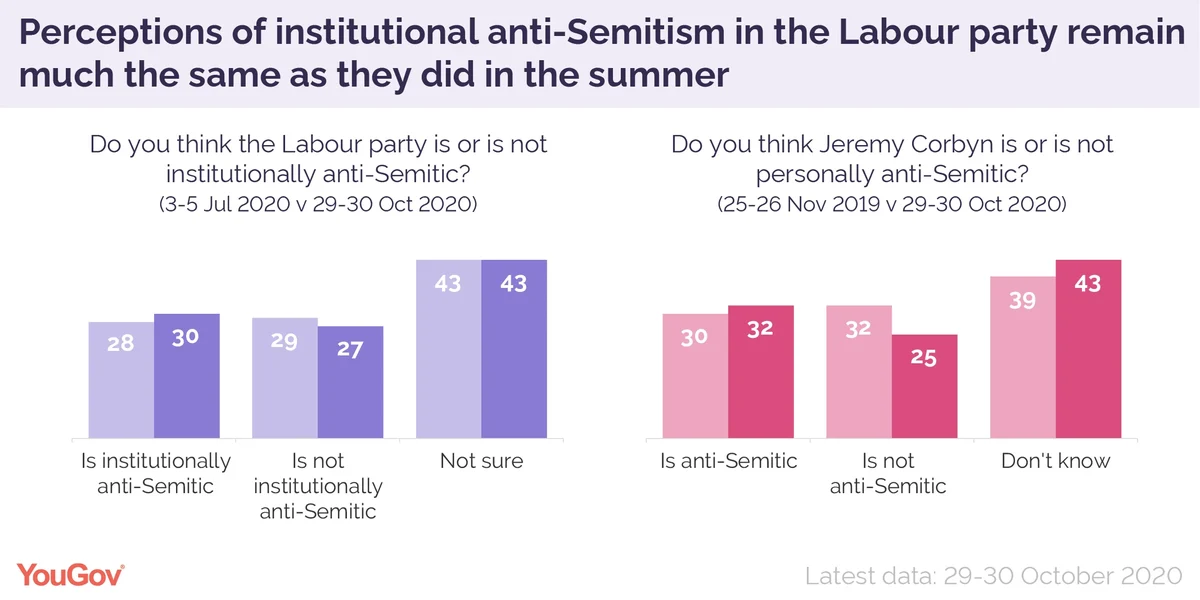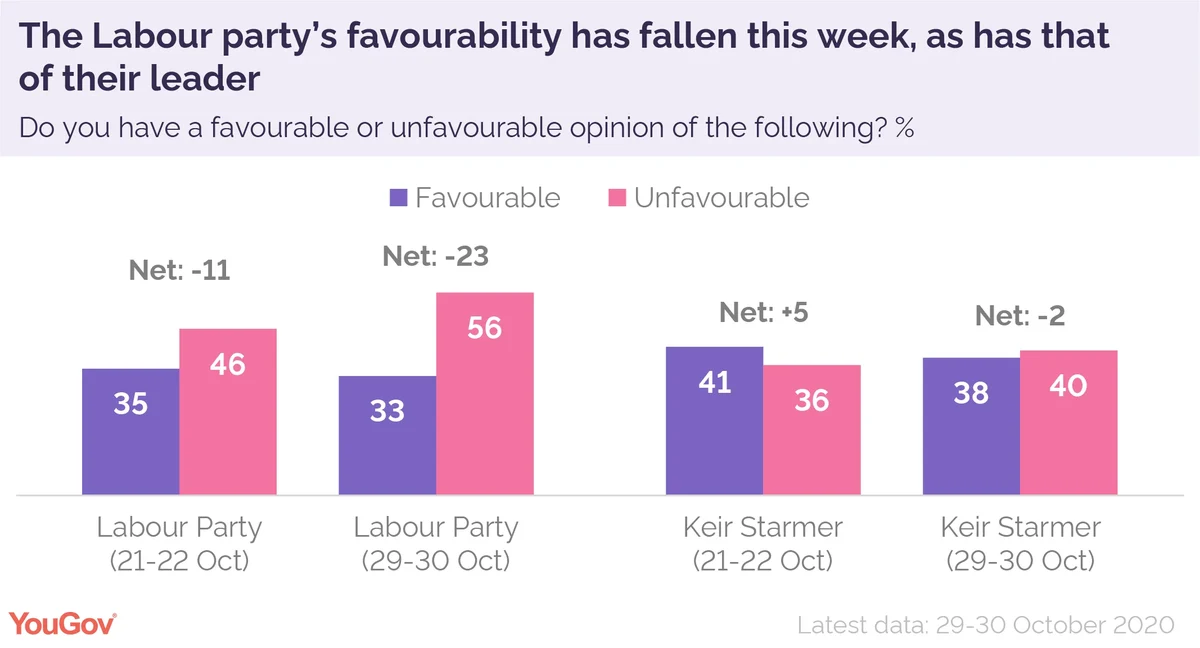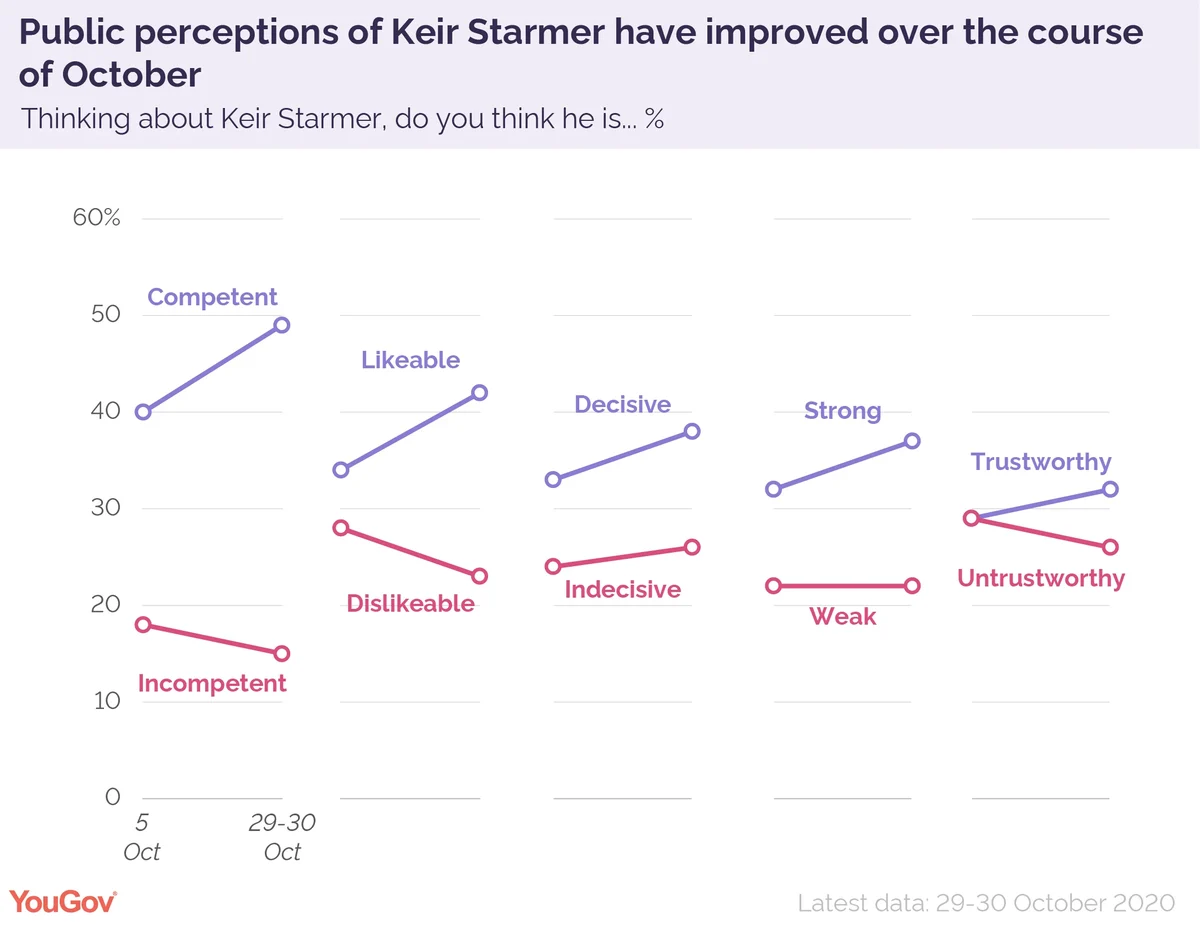YouGov examines the aftermath of the Labour party's decision to suspend Jeremy Corbyn
After yesterday’s dramatic events our snap poll shows that, by a margin of 58% to 13%, the public overwhelmingly backed Keir Starmer’s decision to suspend Jeremy Corbyn from the Labour Party.
The driver of public backing for the move doesn’t seem to be that people think Corbyn is anti-Semitic. While around a third (32%) think he is, 25% think he isn’t and many more, 43%, say they don’t know either way.
Nevertheless, Corbyn is seen as having mishandled his reaction to the accusations. Just 7% of Brits think he has responded well, with fully three quarters (76%) thinking he responded badly (including 72% of Labour voters).

On the other hand Starmer’s management of the situation is more widely praised, with 39% thinking he has responded well and 22% thinking he has responded badly.
Beyond support for the initial decision we have also looked at how it has changed perceptions of the Labour leader and what this might mean for his stewardship of the party.
Despite the support Starmer receives for suspending his predecessor, his favourability has actually fallen slightly since last week. The number who have a favourable view has dropped from 41% to 38%, while the number with an unfavourable view has risen from 36% to 40%. This represents a shift in net terms from +5 to -2.
This change seems to be driven by the minority on the left of the Labour party who are angry about Corbyn’s eviction. Starmer’s net favourability among Labour voters has dropped from +53 to +40, more than compensating for the gains he has made among Tories (from -45 to -35).
The Labour party itself has seen a more dramatic fall in favourability with their net score falling from -11 to -23, their lowest score since May.

While the small drop in his favourability ratings might be worrying to the new Labour leader, Starmer can take some comfort in the fact that he has seen an increase in the number of people who consider him to have positive leadership attributes.
Over the course of October the proportion of people who think the Labour leader is “competent” has risen from 40% to 49%. On “decisive” he has gone from 33% to 38%, and on “strong” he has gone from 32% to 37%. In each of these cases this is the highest he has polled on these measures since he took over as leader.
In the long run, it is these shifts that will likely end up being more significant than the short term hit to the Labour party’s favouability.










